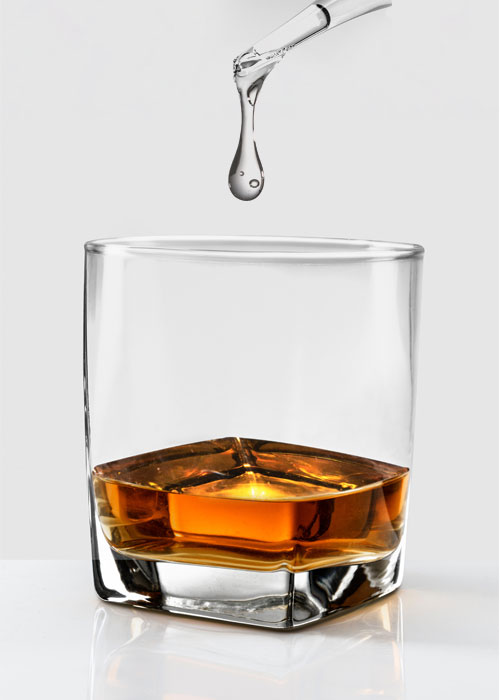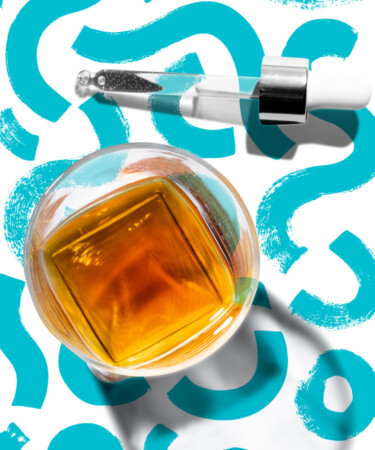There are a multitude of ways to enjoy Scotch. From drinking it neat or on the rocks, to enjoying it in classic cocktails like a Rob Roy, the options seem truly endless. If you fancy drinking the spirit straight, however, one thing is for sure: You should always consider adding a few drops of water to elevate the drinking experience. To find out how adding water can help bolster the spirit, VinePair chatted with Adam Montgomerie, bar manager of NYC’s Hawksmoor, to learn more.
Montgomerie explains that adding a few drops of water to any whiskey is a common and helpful practice for a few reasons. “For one, adding water will change the aromas and the flavors of the spirit and really tends to open the whiskey up,” he says. “The other half of it is dilution. Some whiskies nowadays are 55 to 60 percent ABV, and that’s quite a lot of alcohol, so adding water to it can really improve the drinking experience to tailor the alcoholic strength of the spirit to what you enjoy.”
While he says that the impact of adding water to whiskey will vary depending on variety and brand, generally, adding just a few drops will help bring out some of the more layered aromas in a Scotch. “There are so many different kinds of whiskies to choose from and each has their own notes, flavors, alcohol percentages, casks, etc.,” says Montgomerie. “Typically, the addition of water will help uncover some of the more subtle top notes that you may not pick up drinking it straight.”
To experience for yourself how water can impact the spirit, Montgomerie suggests pouring the same spirit into two glasses. Leave one untouched and add a few drops of water to the other, then stick your nose in each glass to note the differences. Then, when tasting, note the differences in the mouthfeel of the spirit and the degree of “burn” when consumed.

While a few drops of water can be extremely beneficial in some instances, Montgomerie warns that some Scotches — and many other whiskies, for that matter — do not require the addition of water. “The amount of water added is really going to depend on the whiskey,” he stresses. “There are a few I have tried that don’t require it, as it will actually harm the spirit and cause it to taste too thick or too diluted. When you’re adding it, you really want to be careful.”
To determine how much water to add to your Scotch, or if the spirit even needs any water to be added in the first place, Montgomerie suggests tasting it prior to adding any water. “It’s important to go very, very slow. Always taste first, and then add a few drops if you find it necessary,” he says. “Repeat the process until you reach what feels right for you.” In the end, the alcohol should blend nicely with the spirit’s more subtle flavors, rather than dominating on the palate.
While many whiskey lovers and industry professionals think diluting whiskey is sacrilege, Montgomerie disagrees. “I love whiskey, and with higher alcohol versions, I’ll always opt for water,” he says. “But whatever you like, whatever tastes good for you, is what you should go for. It’s your whiskey — drink it how you want.”
